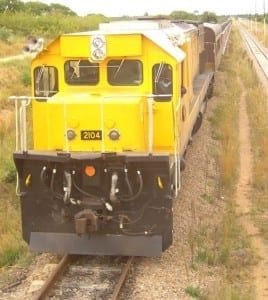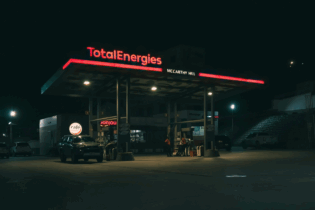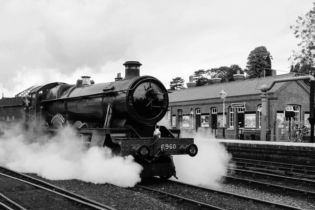Poor performance at NRZ has casualties in the form of the country’s agricultural, industrial, mining and energy sectors, writes Clemence Manyukwe.
DABUKA siding, in Gweru, used to be the hub of rail transport in Zimbabwe, but now it’s a scene of utter desolation. The marshalling yard is supposed to be the nerve centre of the country’s rail network, connecting trains not only between Harare and Bulawayo, but linking the country with Mozambique, South Africa, Botswana and Namibia.
But with the National Railways of Zimbabwe (NRZ) falling on hard times, Dabuka risks being turned into a ghost yard as a result of reduced numbers of passengers and goods trains that pass through the siding.
The marshalling yard’s state is a microcosm of what is going on in the country’s rail sector. For starters, the NRZ no longer has the necessary numbers of locomotives, wagons and coaches to keep the workers at Dabuka, or any other of its stations busy.
Early this year, the NRZ was said to have 168 locomotives but only 71 were said to be serviceable, the others falling out of service as a result of failure to replace obsolete equipment among other factors.
Out of 8 682 wagons, only 3 427 are operational. To make matters worse, about 60 percent of the network was designed to be under the automatic Centralised Train Control, but due to vandalism and aging equipment, it’s no longer factional, throwing all electric locomotives out of business while at the same time putting a strain on those that use diesel in the process.
The tonnage moved by NRZ in 1992 was 12 million, moving to 19 million tones in 1997, but coming down to 2,6 million in 2009, before plummeting to 1,7 million last year.
The developments have resulted in retrenchments and redundancies: from 18 000 employees in 1980, to slightly above 12 000 in 1992, to the current 8 500, with management hinting at further job cuts amid claims that the optimum staff level should be 5000.
The threat of retrenchments comes against the backdrop of unsustainable overheads, with salaries accounting for 86 percent of total revenue in 2011, leaving only 14 percent for all other operating expenditures.
Recently, the state firm was said to be incurring an average monthly deficit of US$3 million, with an overall loss of US$34, 6 million being recorded in 2009.
Unfortunately, the poor performance at NRZ has casualties in the form of the country’s agricultural, industrial, mining and energy sectors. These sectors have transferred their bulk business to haulage trucks that have in turn been blamed for the destruction of the country’s road network which has become a national disgrace.
Phanuel Gukwe, president of the Shipping and Forwarding Agents’ Association of Zimbabwe, said besides the damage suffered by the country’s roads, the near collapse of the railway system has also resulted in unnecessary costs on business and industry in general.
“This is one of the country’s biggest challenges. Goods that would otherwise be conveniently transported by rail are now going by road. This has resulted in increased landed costs of products, overuse and damage of roads, accidents, smuggling and congestion at border posts,” said Gukwe.
Industrialist, Eddie Cross, who is also a member of the Parliamentary Committee on Transport and Communications, said the failure of the railway system was negatively impacting on the economy. He said transportation by rail is one third cheaper when compared to road.
“In 2011, 250 000, 30 tonne trucks crossed the border at Beitbridge. That is 15 million tonnes of cargo going through Beitbridge by road. You can imagine the additional cost of that to the economy of Zimbabwe,” said Cross.
“If that cargo had been moved by rail, the cost to Zimbabweans would have been one third of that by road. The failure of the railways affects everything, the fuel prices, maize price, everything.”
He added that even when it comes to maintenance, railways is cheaper.
As an example, Cross said the 804 kilometre stretch of road from Plumtree to Mutare being constructed by Group Five of South Africa would cost US$206 million compared to less than US$100 million required to rehabilitate the 3 700 kilometres of railway track in the country. But what is the way out?
One thing that the NRZ management has proposed to turn around the parastatals fortunes is recapitalization.
The home truth is that the government’s purse is empty.
So what can be done?
Ruth Labode, a former NRZ board member said one way is for the parastatal to find a partner. That, she added, would however not be an easy task as investors generally consider it a risk going into business with a government operation. Under such circumstances, contracting its business is the way out. “NRZ must not be looked at in isolation. Its challenges are the same as all the other parastatals such as air Zimbabwe. One option that it has is to subcontract some of its services,” said Labode. “If it is wagons, they can rent the wagons. If it is the radio system, or other equipment, they can find out who deals with those and enter into contracts for profit sharing.” Besides that, the parliamentary committee on Transport and communications has also come up with some recommendations, which if adopted would go a long way in transforming the parastatal. One of them is for Trans Minister Nicholas Goche to appoint a board that has not been in place since 2009, leaving NRZ to sail like a rudderless ship. In a recent report, the committee added that in an attempt to initiate phased recapitalization, in 2004 NRZ concluded contracts with CNR of China for the supply of 10 locomotives, 8 commuter train sets and 64 mainline coaches at a total cost of US$110.4 million. In 2006, the firm paid US$2.5m and an additional US$400 000 in 2008 towards deposit for the equipment, but up to now it has failed to secure the lines of credit or government guarantee for the remainder of the purchase price. “The Committee recommends for government to look for a strategic partnership arrangement for NRZ such as is the case with the Bulawayo Beitbridge Railway [BBR] arrangement. The Committee recommends separation of infrastructure and maintenance management from Operations management. Management to observe, as a matter of paramount importance, the issue of ‘Health and Safety’ as well as good corporate ethics,” reads part of the committee report. The committee chairperson, Blessing Chebundo, said Goche had not responded in the House of Assembly to claims of corruption, mismanagement among others raised by their report as required by Standing Orders of Parliament. Besides providing freight and passenger services, the NRZ had real estate with a number of residential areas, land, office accommodation, warehouses and commercial developments at stations and along railway tracks under its name. Just like the tonnage of yester year that it used to carry, that is now a thing of the past as some of the real estate business is slipping away. One such residential area is Rugare, which has now been transferred to Harare city Council as the parastatal goes off rails. Harare municipality ward 13 councillor, Peter Moyo, under whose jurisdiction Rugare falls, said he led negotiations for NRZ to transfer Rugare to council because of the neglect it was suffering. “Now what is left in the hands of the NRZ is the hall, ground and clinic. They neglected the ground for a long time it’s now like a rural ground. The hall is dilapidated and we are not using it. The clinic has been neglected, it’s not functioning. Patients have to go to Kambuzuma now,” said Moyo. Source: allafrica.com






